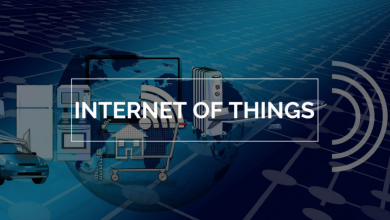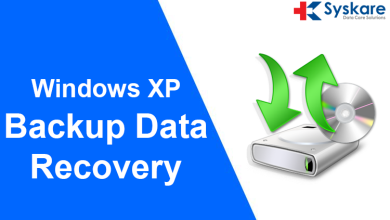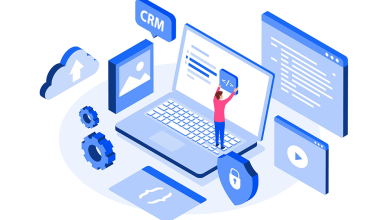How Optical Character Recognition (OCR) Works?

Optical Character Recognition has emerged as an innovative and accurate solution for digitization. And is now used in a variety of industries. OCR software technology can turn any device into a handheld scanner, converting paper-based documents. Such as scanned paper, PDF files, and even images taken with digital cameras into searchable and editable data.
More and more industries are using best OCR software to make their businesses more efficient. Because it is the best way to make information available to everyone with a single click. Do you think OCR can provide something to your business? Read behind the scenes to understand how OCR works.
What is Optical Character Recognition?
Optical Character Recognition is the electronic conversion of digital documents containing only handwritten content, printed text. Or images into a machine-readable and searchable digital data format. For example, OCR can convert handwritten legal notes. It normally take a long time to review, into PDF files that allow you to quickly find relevant content.
In short, OCR takes a physical or static digital image that cannot searched and converts it into a fully searchable digital document.
How does OCR work?
The concept of OCR is simple, but the technology can difficult to implement due to several factors. For example, different fonts and different character formation methods can make it difficult to identify characters. The
OCR process divided into image pre-processing, character recognition, and output post-processing. To better understand how this technology works, let’s break down the OCR steps.
Step 1: Document scanning
The first step to success is to make sure that the document is oriented correctly when scanning. Aligning the lines of text in your document horizontally and vertically greatly improves the efficiency of your process. Of course, if you’re working with digital images such as JPEGs, PNGs, and PDFs. Also you don’t need this step because you already have a “scanned” document.
Step 2: Software refines the image
The software then sets out to improve the elements of the document that need to be captured. The edges of the text are smooth, artifacts, imperfections. Also dust particles separated and removed from the image, leaving only clear and simple text.
Step 3: Binarization
Then align the text and convert the color or grayscale to black and white only. The binarization step not only makes the font easier to recognize, but also helps to accurately distinguish the text (or any image element) from the background.
Step 4: Identify the character
The next step is to see what characters displayed on the page. A simpler Optical Character Recognition form compares the pixels of each scanned character with an existing font database to determine the best one. A more sophisticated form of OCR divides each character into components such as curves and corners to match both physical features and the actual character.
Step 5: Ensuring accuracy
OCR software can further reduce errors by creating cross-references using internal dictionaries to improve accuracy.
Step 6: Create an editable digital text file
The result is created: A fully searchable digital text file that can be manipulated, explored, and edited in any way the owner desires.
What Is OCR Used For?
For quick, regular scanning needs, OCR won’t be a massive deal. If you do a massive quantity of scanning, capable of seek inside PDFs. To locate the precise one you want can keep pretty a piece of time. And makes OCR capability on your scanner application greater important. Here are a few different matters OCR facilitates with:
- Automated records processing and records entry. (Example: Job applicant monitoring structures for resumes).
- Making scanned books searchable.
- Converting handwritten scans to computer-readable textual content.
- Making files greater usable with the aid of using reader applications that help visually impaired users.
- Preserving ancient files and newspapers, even as additionally making them searchable.
- Data extraction and switch to accounting applications (Example: Receipts and invoices).
- Indexing files used with the aid of using seek engines.
- Recognition of driving force license plates with the aid of using a pace digital digicam and red-mild digital digicam software program.
Speech synthesizers for those who cannot speak. Theoretical physicist, Stephen Hawking, is possibly the maximum famous person of a speech synthesizer application.
Why Use OCR?
Why now no longer simply take a picture, right? Because you wouldn`t be capable of edit something or seek the textual content due to the fact it’d simply be an image. Scanning the record and strolling OCR software program can flip that report into something you could edit and be capable of seek.
Why Do Today`s Businesses Use Optical Character Recognition Software?
OCR software program generation is being utilized by numerous industries which are marred via way of means of issues as information useability, inaccuracy, and loss. There are many methods that OCR generation has been supporting industries which include healthcare, human resources, finance, and insurance, via way of means of revolutionizing information and garage processes. Digitizing and sharing documents to save you not unusual place user-errors.
Storing facts is vital for nearly any business. However are you able to believe how a lot it might assist public offerings and governmental companies? Retrieving invoices is likewise less difficult while generation is for your side. But the magic doesn`t end here, nearly each enterprise you may assume of, may want to substantially take benefit of OCR benefits. Let`s test the not unusual place ones so that you can comprehend how a lot you may enhance your operational performance. And purchaser pride via way of means of making unstructured information searchable.
Improve security
In a digital environment, security needs to increase. Especially for the processing of sensitive information or personal data controlled by police and civil society. OCR technology programmed to prevent fraudulent attempts. By comparing the information provided with data stored with minimal errors that cannot manually performed.
Ending
Over the decades, Optical Character Recognition has grown more accurate and more sophisticated. Due to advancements in related areas such as artificial intelligence, machine learning, and computer vision. Today, OCR software uses pattern recognition, feature detection. and text mining to transform documents faster and more accurately than ever before.




